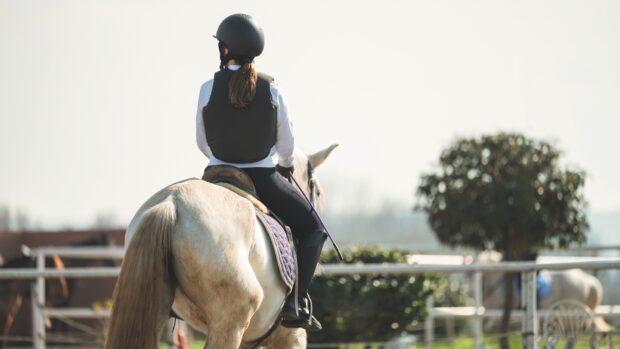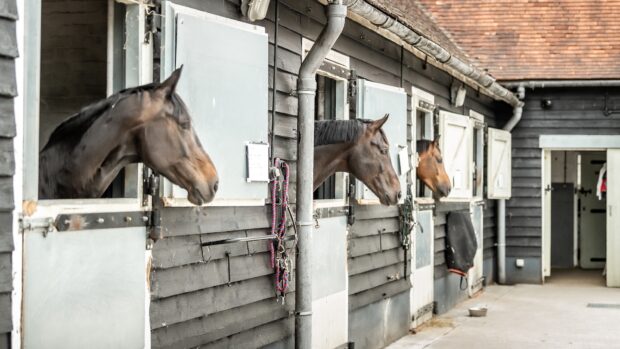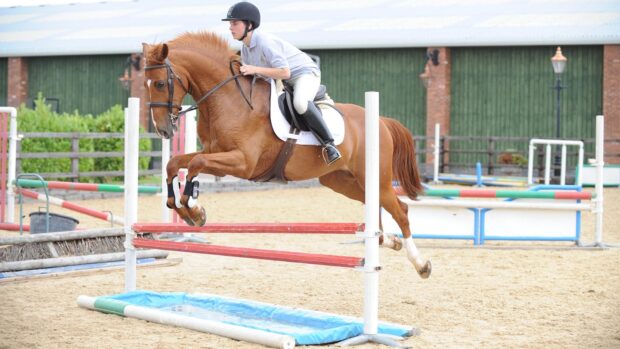An FEI dressage forum will be organised this year to tackle concerns in the sport – but the equestrian community has been warned that it would be a “grave error” to think welfare issues are “just a dressage problem”.
The Swedish Equestrian Federation’s horse welfare council and the Gothenburg Horse Show co-hosted a meeting at the show (21–25 February) on horse welfare and social licence, attended by representatives from Nordic and Polish federations, show organisers, equine researchers, the FEI and World Horse Welfare.
The Swedish federation’s secretary general Johan Fyrberg told H&H that “horse welfare must be addressed within the sport, but also outside it”.
“The pattern we have seen is horse abuse cases taking place in private business, at stables and in training. There are not very many cases, but there are some, and that is serious.
“There’s a big discussion about this in the whole of the equestrian world right now, and the discussion is very intense in the Nordic countries,” he said, adding that although this applies to all equestrian disciplines, the recent cases “have mostly been related to dressage”.
“The aim of the meeting was to be proactive and spread knowledge between countries, and look at how we can interact more as federations with what is going on in private training, and within the larger equestrian community.
“It’s important federations work together to tackle the challenges, and it’s not so much that we need new rules and regulations, we need to follow the rules that we have.”
An outcome of the meeting was a letter to the FEI signed jointly by the Nordic federations, the Swedish, Danish and Norwegian and Finnish, which have “joined forces to create change”
“After several notable cases where unacceptable training methods have been revealed recently, it is obvious that we need to act on an international level. Despite all efforts so far, there is still much work that must be done to secure horse welfare at all times and to secure the sport’s social licence on an international, as well as national level,” reads the letter.
This letter called for the creation of an FEI dressage forum, where stakeholders “together can come up with initiatives for improvements” in the sport. The federations also want to address judging in competition, education and training of young horses, and the role of young horse championships.
“We need to consider why there are championships for young horses; is it to prepare the horses for a successful future or for commercial reasons? These are things we hope to discuss in the dressage forum,” said Mr Fyrberg.
An FEI spokesman said: “We have thanked the national federations for their constructive approach and for highlighting the importance of following the key themes outlined in the equine ethics and wellbeing commission (EEWBC) final report, notably, be a leader, be trusted, be transparent, be proactive and be accountable,” he said.
“All of these apply to the FEI and national federations alike and we are in complete agreement that it is our collective responsibility to ensure the welfare and integrity of our sport, both within and outside the arena.”
The spokesman added that “for this reason”, the EEWBC’s recommendations and proposed action plans will be discussed at the FEI Sports Forum on 29–30 April.
“It is likely that some actions may require rule changes, which would be submitted to the vote of the general assembly 2024,” he said.
“A dressage forum, as proposed in the letter, will be organised after this year’s Olympic and Paralympic Games. We are grateful to the national federations for their concern and share the same determination to make a positive impact swiftly and effectively.”
World Horse Welfare chief executive Roly Owers spoke at the Gothenburg meeting and told H&H that one of the key messages is, “this is about actions and not words”. He also emphasised the importance of the equestrian community taking new developments in equine research and evidence on board.
“This is a long-term issue, and it’s never done with because public attitudes and our understanding of good welfare changes. Therefore, we always need to be progressing and developing,” he said.
“Often, a lot of these [horse welfare] issues are regional and there’s different contexts, but public acceptance is a collective responsibility and involves everyone.”
Mr Owers added that recent cases of horse abuse are “not only a concern for the dressage world, but a concern for the equestrian world”.
“Some people have a focus on particular disciplines, and previously we heard a lot about endurance and other disciplines. It would be a grave error to think this is just a dressage problem, because it most certainly isn’t,” he said.
You might also be interested in:

‘Not an attempt to censor or prevent transparency’: FEI responds to outcry over rules on filming at major shows

‘The whole world has witnessed terrible cruelty’: open letter to the FEI describes abuse in dressage as ‘a wake-up’ call

Subscribe to Horse & Hound magazine today – and enjoy unlimited website access all year round
Horse & Hound magazine, out every Thursday, is packed with all the latest news and reports, as well as interviews, specials, nostalgia, vet and training advice. Find how you can enjoy the magazine delivered to your door every week, plus options to upgrade your subscription to access our online service that brings you breaking news and reports as well as other benefits.




